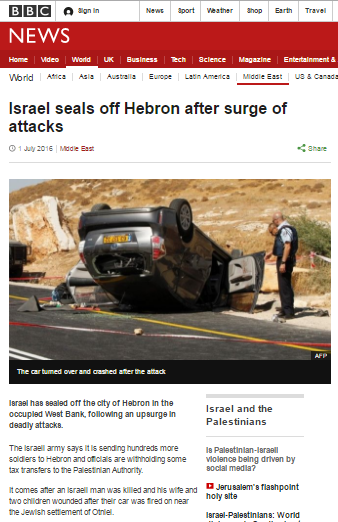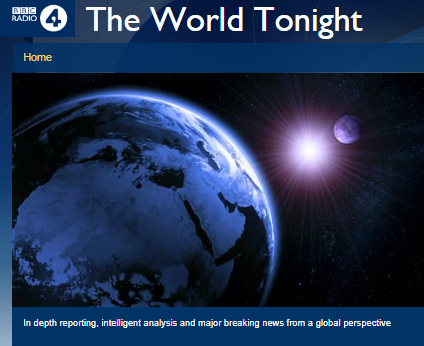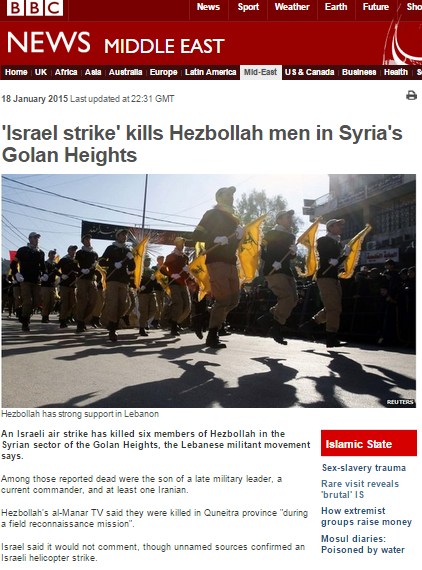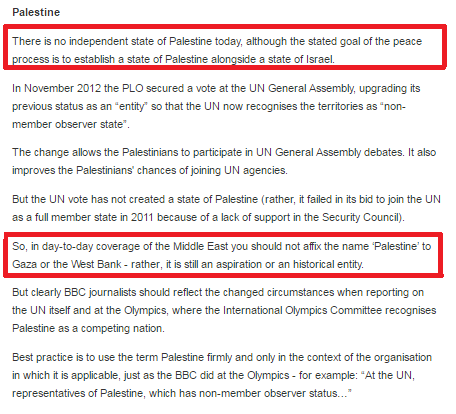In his recent parting musings, Kevin Connolly told listeners to BBC Radio 4 that:
“In thousands of work places from hospitals and hotels to building sites and banks, Israeli Jews and Palestinians rub along a little better and for much more of the time than outsiders might imagine.”
That statement is of course true, but it raises the question of why “outsiders” are not familiar with the day-to-day realities of co-existence in Israel – especially as it comes from a journalist who represents a media organisation which pledges to give it audiences “insight into the way people live in other countries”.
The cartoon portrayal of Israel so often seen in the reporting of Connolly and his colleagues leaves no room for the provision of such insight. The black and white narrative promoted day after day mean that audiences rarely get to see reality’s other hues and a correspondent such as Connolly can spend five years reporting from Jerusalem without making any significant contribution to their understanding of how the vast majority of people making up Israel’s different ethnic and religious communities live, work, learn and relax together.
When a terror attack took place on Route 60 on July 1st, the BBC News website reported that:
“…an Israeli man was killed and his wife and two children wounded after their car was fired on near the Jewish settlement of Otniel. […]
The victims of Friday’s attack were members of the same family. Local media named the dead man as 48-year-old Michael “Miki” Mark, a father-of-10.
He was killed when the car crashed after the attack. His wife and two children were taken to hospital for treatment.”
A few days later it emerged that the first people to arrive at the scene and offer help and first aid were a Palestinian couple from Hebron.
““At first I thought it was an accident. I opened the door, which was difficult because the car was overturned,” the Palestinian man, a resident of Hebron, told Channel 2. “The girl was inside the car screaming, ‘They’re killing us,’ so I just kept telling her not to be afraid and that everything would be fine.”
After he managed to pry one of the doors open, the man, who wasn’t named in the report, said he pulled 14-year-old Tehila from the wrecked car.
He said his wife, who is a medical doctor, worked to stanch the bleeding from the teen’s abdominal wound while he called an ambulance to the scene.”
They were joined by a Palestinian doctor who treated the injured until medical crews arrived on the scene.
While anyone who is not an “outsider” as Connolly puts it will be able to recount numerous similar examples of Palestinians helping Israelis and Israelis helping Palestinians, to BBC audiences this story would be news. It is, however, a story which falls outside the corporation’s narrative driven caricature of “the way people live” in Israel and the Palestinian controlled areas and one which – like so many others – the BBC has refrained from telling to date.
Let’s hope that Kevin Connolly’s successor will be better committed to the pledges laid out in the BBC’s public purposes and that audiences will receive some of that long neglected “insight” into how people really live in Israel long before his or her stint comes to an end.




